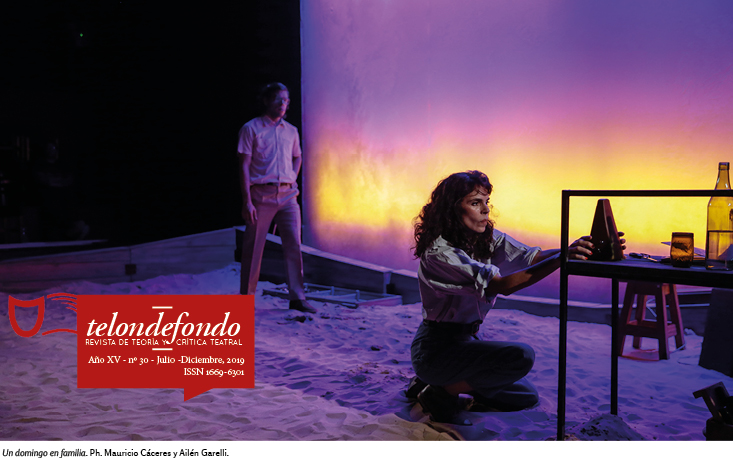Reflections on the Construction of the Female Identity in in the Early Twentieth Century Comedy
Abstract
Family has been the dramatic core of comedy in Buenos Aires since its origins, working, in many cases, as a microcosm of different historical realities. Within this family framework, this essay focuses on the figure of women. The tensions that occur at the beginning of the twentieth century between the old Creole middle class, the old oligarchy and the emerging middle class of immigrant origin are revealed not only in social life but also in theatrical expressions. In comedy, specifically, this becomes particularly noticeable with the emergence of the comedia asainetada that has that incipient middle class of immigrant origin as its protagonist. However, the construction of the feminine identity shows her still constrained to the scope of the house where it is interesting to observe the role of mothers, wives and mother-in-law, the latter of whom constitute an important source of humor. We are interested here in pointing out some aspects of this phenomenon indicated taking into consideration different variants of comedy. We also want to see how the case of working women is approached in pieces such as Federico Mertens’ Mama Clara (1920) or Darthes and Damel’s The breadwinner (1931)Downloads
Los autores/as que publiquen en esta revista aceptan las siguientes condiciones:
-
Los autores/as conservan los derechos de autor y ceden a la revista el derecho de la primera publicación, con el trabajo registrado con Licencia Creative Commons Atribución-NoComercial-CompartirIgual 4.0 Internacional, que permite a terceros utilizar lo publicado siempre que mencionen la autoría del trabajo y a la primera publicación en esta revista.
-
Los autores/as pueden realizar otros acuerdos contractuales independientes y adicionales para la distribución no exclusiva de la versión del artículo publicado en esta revista (p. ej., incluirlo en un repositorio institucional o publicarlo en un libro) siempre que indiquen claramente que el trabajo se publicó por primera vez en esta revista.
-
Se permite y recomienda a los autores/as a publicar su trabajo en Internet (por ejemplo en páginas institucionales o personales).











